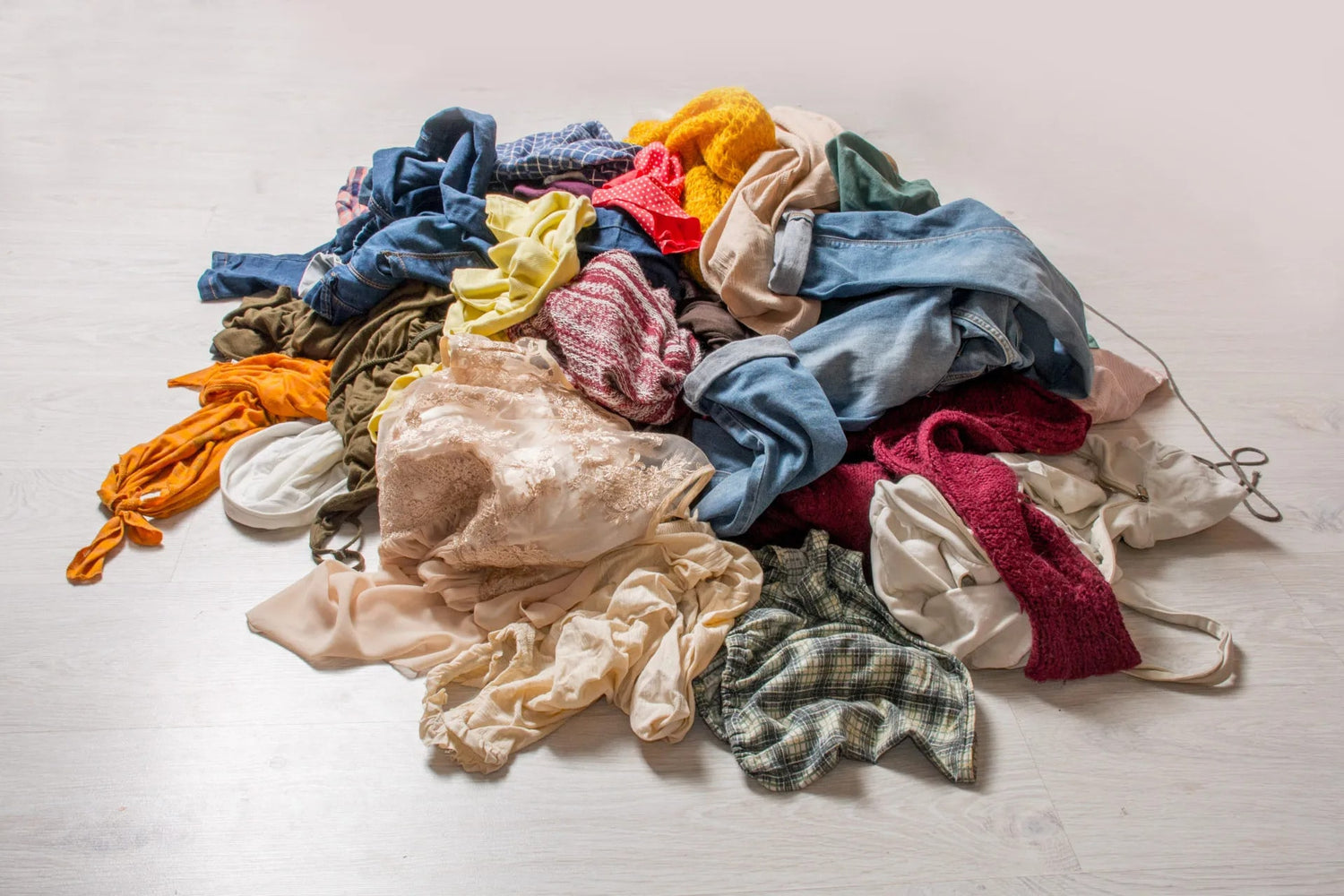Recycling isn’t just about plastic. A great variety of day-to-day items are now being remade from all sorts of other defunct items that are chucked away. A case in point: clothing, which is on the verge of becoming a major market for recycling using repurposed fabrics. In 2022 the global market for recycled textiles was valued at over $5 billion and that’s expected to increase by thousands of millions to nearly $8 billion by 2030.
Those figures might sound impressive, and you may have also heard about global brands like Adidas and Allbirds leading the way with recycled products. But bear in mind recycled fashion is still an untapped market. The amount of textile waste is rising fast, having roughly doubled over the past 20 years. But fewer than 1% of clothes are made from recycled textiles at the time of writing.
That’s changing fast though; fashion’s becoming more circular - so here are a few of the benefits of recycled textiles, with a focus on the most popular natural fabric in the world: cotton.
1. Waste reduction
The production of just a typical cotton T-shirt can take up to 2000 litres of water, as well as releasing up to 10 kg of CO2. That’s an extraordinary amount of waste for just a single garment, which likely won’t be getting worn so often anyway. According to the latest figures, an average item of clothing will only be worn around 7 times before being tossed away!
The throwaway farce we’re stuck in means that the mountain of textile waste is rising too. The UK alone produces more than two hundred thousand tons of textile waste a year - not far behind ignominious Italy which is the worst in the EU, shedding nearly half a million tons into landfill sites. Without recycling, that massive stockpile of waste becomes an even more massive problem.
On the flipside, that means there’s plenty of chucked-away material to make new clothes out of, to reduce that waste and stop more of it accumulating, alongside all of the nasty side effects. Of course, recycled cotton and textiles don’t entirely eliminate waste. But they’re far better for reducing waste.
2. Less harm to biodiversity
Following on from the point about reducing waste, recycled fabrics - and in particular recycled cotton - are better at protecting biodiversity.
It’s a big issue because our take-make-waste culture is increasingly being recognized as the main underlying cause of the biodiversity crisis. And much of that negative impact comes from pesticides, microplastic contaminants, water pollution. In short, activities associated with creating fabrics and products afresh.
All of which are vastly reduced through recycling. Still, remember that not all recycled textiles are made equally and while all textile recycling has some sustainability benefits, natural fabrics like cotton are far better than synthetics. Recycled polyester, for example, still leaks microplastics into our oceans like virgin polyester does.
3. High quality is now possible
While we’re not yet able to recycle the array of fabrics that we wear to create high-quality end fabrics, the recycling of cotton and some other textiles looks promising. Recycling cotton, for example, has become technologically established over the past few years.
Still, up until now recycled textiles have often had to be blended with new fabric due to their lower quality. But increasing interest and technology advancement are slowly but surely allowing recycled material to be almost on a par with virgin counterparts. Recycled cotton from Recover is renowned for its quality - and pioneering companies, like Re:newcell are also figuring out ways to make blended fabrics much easier to recycle. Advances like these could potentially increase the 1% of textiles that are recycled into new clothing to a shocking 70%!
Technology is also making the act of recycling easier for folk. Take the QR codes on all of POMP’s labels, which allow items to simply be sent back to be recycled once they’ve outworn their welcome.

A final point is to remember that timeless, simply-styled essentials in pure fabrics like cotton are still a lot easier to recycle than trendy fast-fashion items that combine different fabrics and patterns - and often use low-quality fabrics or synthetic fibres.
4. More jobs are being created
This circular approach of creating new clothes from old clothes is environmentally friendly - clearly. But it also comes with economic and social benefits. The recycling textile industry could scale up and become far more impactful. It’s forecast that about 15,000 new jobs could be created within textile recycling. It’s also estimated that for every 1,000/tonnes of recycled textiles, 20 jobs are created. And with the increase of textiles means the increase of even more jobs.
While this is welcome, we should also pay attention to a just transition for workers, as with any industrial upheaval or transformation. For instance, automation and robotization technologies within this sector could impact human jobs.
Fashion recycling at POMP
A final point is that by buying recycled clothing you’re raising collective awareness and increasing demand - encouraging more brands to get involved. The more people buy from circular brands then the more brands will become circular.
At POMP we’re already doing our fair bit with recycled fabrics. Our range includes items that are made from 50% post-consumer recycled cotton and 50% certified organic cotton, like our men’s sustainable essential t-shirt, below.


And it doesn’t end there. By using the QR codes on all of our garments, you can easily send used clothes back to get recycled.
While our items aren’t completely recycled, all of our non-recycled fabric is certified to guarantee fair working conditions, quality, and low environmental impact. Find out more about the benefits of certified organic cotton in this other blog post.



